Signs Your Child Is Being Bullied
1. Physical Signs
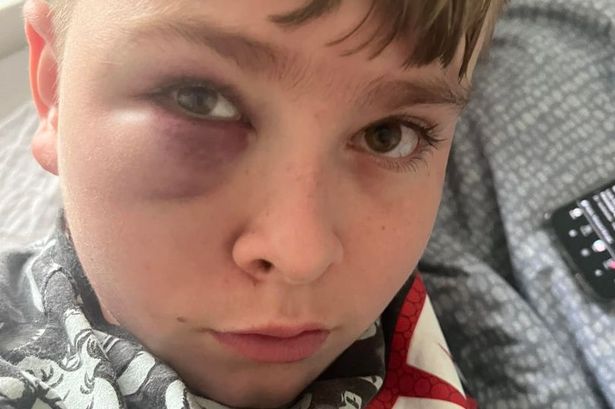 Image source Daily RecordThe most obvious sign that your child is being bullied is physical marks on their body that cannot be explained such as bruises and scrapes. Be aware if your child starts wearing long sleeves, even in the warmer weather as this could be a sign that they are trying to cover something up.
Image source Daily RecordThe most obvious sign that your child is being bullied is physical marks on their body that cannot be explained such as bruises and scrapes. Be aware if your child starts wearing long sleeves, even in the warmer weather as this could be a sign that they are trying to cover something up.2. Ailments
 Image source IndigoHeadaches and stomach aches are possible indicators that your chid is being bullied, whether these are made up ailments or real. Take note if your child frequently visits the nurse with such symptoms. Stress and anxiety from bullying may well be the cause.
Image source IndigoHeadaches and stomach aches are possible indicators that your chid is being bullied, whether these are made up ailments or real. Take note if your child frequently visits the nurse with such symptoms. Stress and anxiety from bullying may well be the cause.3. Change in Eating Habits
 Image source Kellogg's
Image source Kellogg'sMost kids come home from school starving and ready for a snack. If your child continuously comes home even more ravenous than usual, it could be because they didn't eat lunch. Many acts of bullying occur in the lunchroom and it's worth pointing out that binge eating or loss of appetite is a sign of emotional distress.
4. Sudden Loss of Friends
 Image source The Mirror
Image source The MirrorChances are you know who your child's friends are, the ones they hang around with after school and the ones they speak to all the time. If they suddenly stop talking to their closest pals, it could be that they have been excluded from the group and are being picked on.
5. Damaged or Lost Personal Items
 Image source Family Lives
Image source Family LivesKids can be careless and clumsy at times but if yours has started coming home with torn clothing and missing shoes or jewellery, for example, or maybe a damaged backpack and soggy text books, something else could well be going on. It could be a sign of bullying.
6. Strange Bathroom Habits
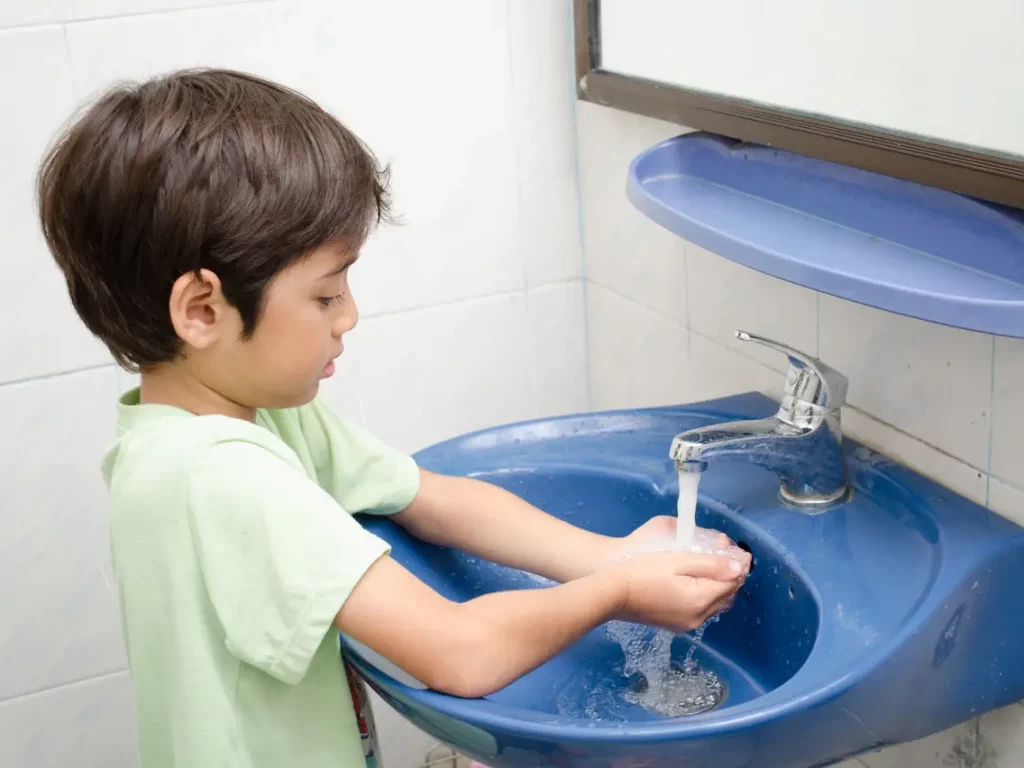 Image source Business Insider
Image source Business InsiderDoes your child wait until they gets home from school before they will use the bathroom? Although this may seem strange, it is a possible indication of bullying as school bathrooms are usually unsupervised, making them a possible place for bullying to take place.
7. Big Changes in Self-Esteem
 Image source Children's Health
Image source Children's HealthAll children have highs and lows but a dramatic change in your child's self-esteem and personality may cause a parent to raise their concerns. A child who continually comes home teary-eyed, depressed and/or sad could be facing verbal harassment at school.
8. Become Clingy
 Image source FreepikChildren who experience bullying might also become develop a fear of certain people and become clingy to their parents. They may feel afraid to be alone or express feelings that they don't think they are good enough. These behaviour traits should be taken very seriously.
Image source FreepikChildren who experience bullying might also become develop a fear of certain people and become clingy to their parents. They may feel afraid to be alone or express feelings that they don't think they are good enough. These behaviour traits should be taken very seriously.9. Decline In School Performance
 Image source BC Parent
Image source BC ParentChildren aren't expected to jump out of bed every morning, excited to have a day of school to look forward to. However, if your child often wants to skip school and you find out that their grades appear to be slipping, this lack of focus should sound bullying alarm bells.
10. Self-Destructive Behaviour
 Image source Mission HarborOnce a child is feeling depressed as a result of bullying, this may led to much more serious issues such as self-harming or feeling they would be happier if they weren't here. Obviously, this must be addressed urgently so professional help can be administered.
Image source Mission HarborOnce a child is feeling depressed as a result of bullying, this may led to much more serious issues such as self-harming or feeling they would be happier if they weren't here. Obviously, this must be addressed urgently so professional help can be administered.11. Emotional Response to Going Online
 Image source Family LivesBecause of the way of the world, if a kid is being bullied at school, it might not stop when they get home as it can continue online or through text messages. If your child becomes upset or withdrawn after using their electronic device, this will likely be the case.
Image source Family LivesBecause of the way of the world, if a kid is being bullied at school, it might not stop when they get home as it can continue online or through text messages. If your child becomes upset or withdrawn after using their electronic device, this will likely be the case.12. Changes In Hobbies And Routines
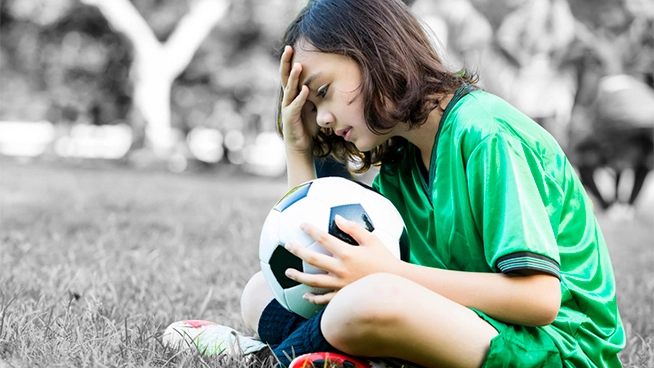 Image source Stack.comKeep an eye out for changes in interests or commitments, such as your child avoiding sports practices or suddenly dropping out of an activity they do after school. While there could be a simple reason such as them losing interest in that particular hobby, they may be trying to avoid abuse and confrontations.
Image source Stack.comKeep an eye out for changes in interests or commitments, such as your child avoiding sports practices or suddenly dropping out of an activity they do after school. While there could be a simple reason such as them losing interest in that particular hobby, they may be trying to avoid abuse and confrontations.13. Difficulty Sleeping
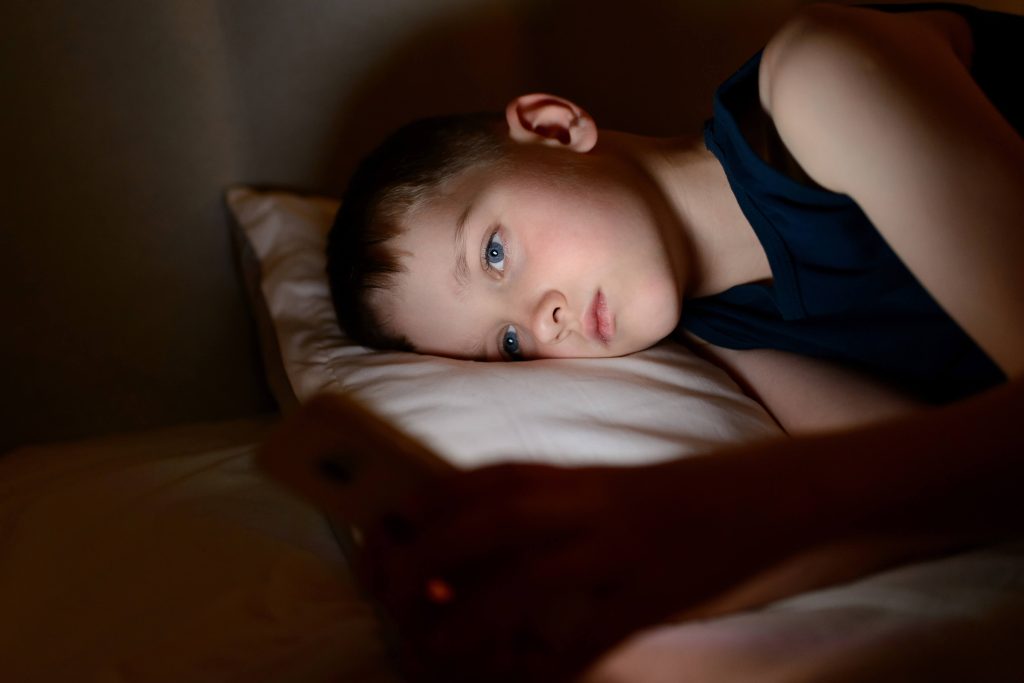 Image source Exigo
Image source ExigoInability to sleep, nightmares and bed wetting are all indicators that there is something troubling your child. If sleep issues are coupled with the other signs mentioned above and your child won't open up to you, it could mean they are suffering at the hands of bullies.
14. Start Bullying Other Kids
 Image source Times of IndiaThis is a disturbing sign that is a consequence of being bullied. Some victims become so stressed that may begin to take it out on their brothers and sisters or weaker friends. They can become aggressive and uncooperative towards their parents and act very out of character.
Image source Times of IndiaThis is a disturbing sign that is a consequence of being bullied. Some victims become so stressed that may begin to take it out on their brothers and sisters or weaker friends. They can become aggressive and uncooperative towards their parents and act very out of character.15. Comes Home Late
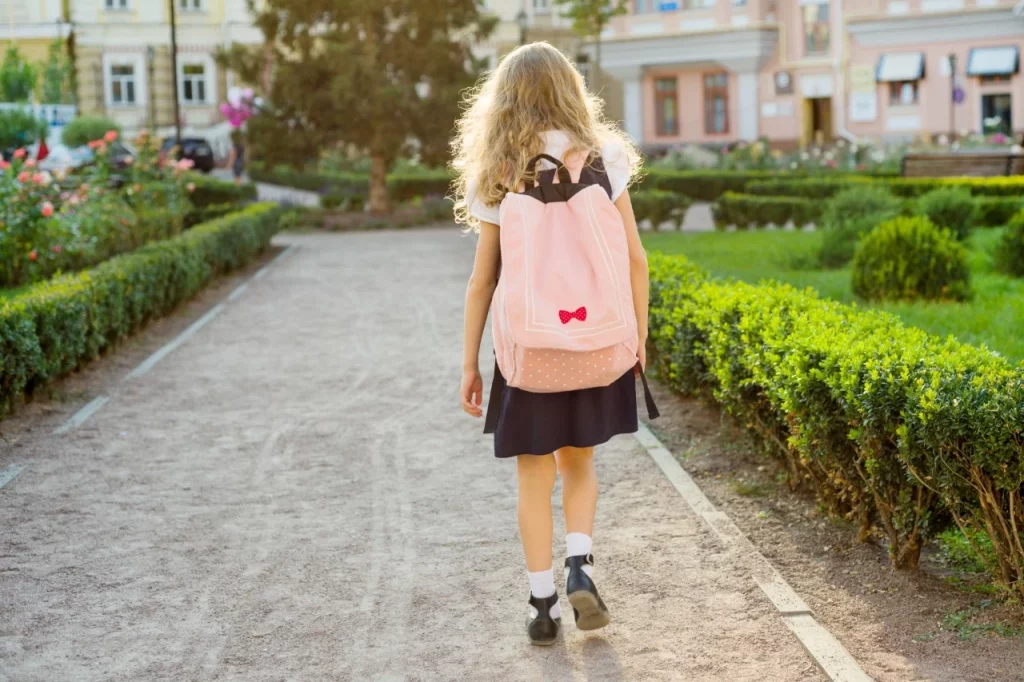 Image source First NewsWhen your child gets home from school later than usual and this happens more and more, it could be that they are going the long way home to avoid bullying or they aren't leaving school until after the bullies are out of sight. Your child may be reluctant to give a reason why.
Image source First NewsWhen your child gets home from school later than usual and this happens more and more, it could be that they are going the long way home to avoid bullying or they aren't leaving school until after the bullies are out of sight. Your child may be reluctant to give a reason why. 16. Frequent nightmares
 Image source Cleveland ClinicBullying is an emotional trauma and knowing he or she has to go to school in the morning, can make a child nervous. This can result in trouble falling asleep, waking up during the night and having nightmares. Being tired in the morning may be a sign that the child is suffering with an interrupted sleep pattern because of bullying.
Image source Cleveland ClinicBullying is an emotional trauma and knowing he or she has to go to school in the morning, can make a child nervous. This can result in trouble falling asleep, waking up during the night and having nightmares. Being tired in the morning may be a sign that the child is suffering with an interrupted sleep pattern because of bullying.17. Not Speaking Up In Class
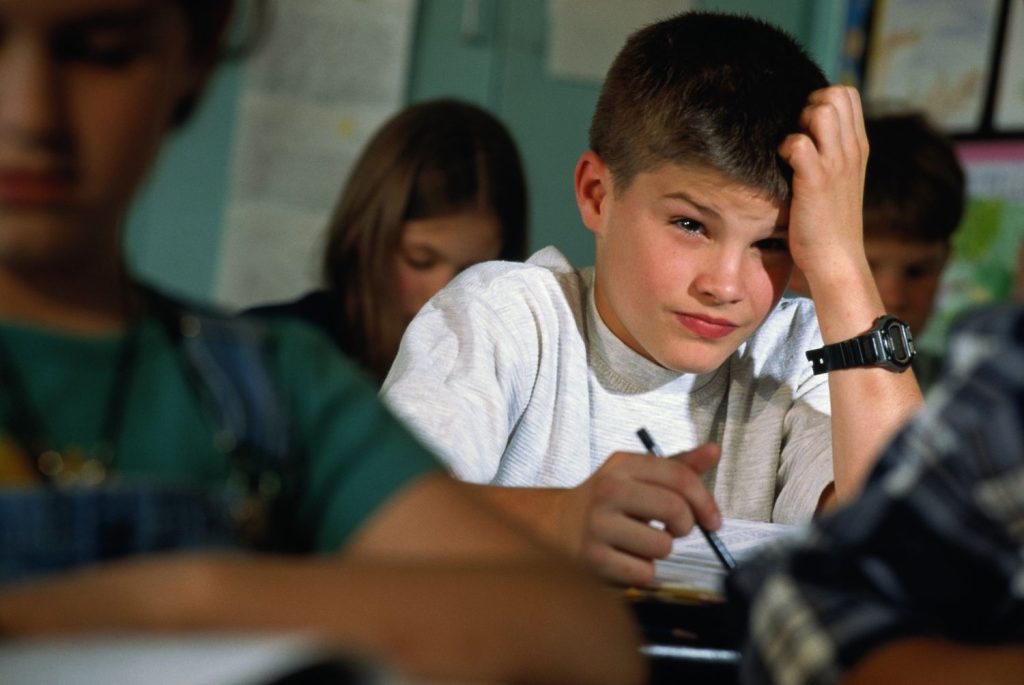 Image source VeryWell Family
Image source VeryWell FamilyA child may stop participating in class out of pure fear that no matter what they say, they are going to be bullied. A 2010 study by the University of California at Los Angeles found there was a link between low achievement in school and bullying. Teachers may sometimes misinterpret a child not speaking up for lack of motivation.
18. Asking For Extra Lunch Money
 Image source Toby and Roo
Image source Toby and RooA child may come home hungry because a bully is stealing their lunch money or food. He or she may ask for extra money to buy lunch or for extra food for their packed lunch. An adult might mistakenly think the child needs more food due to a growing spurt.
19. Get Emotional Talking About School
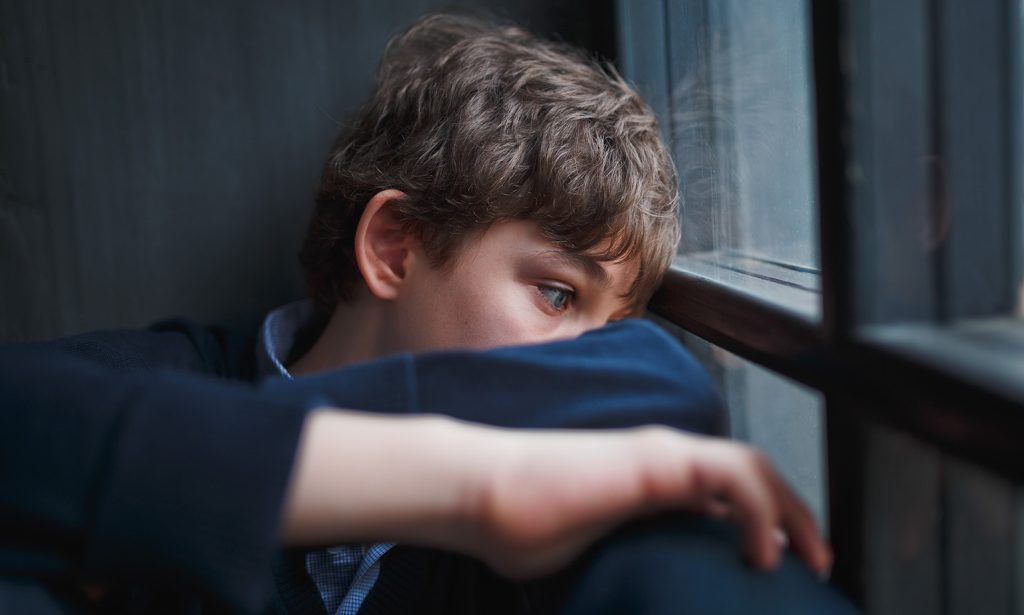 Image source HelpGuide.org
Image source HelpGuide.orgKids don’t often express themselves easily. According to research, 64% of bullied children never report the bullying. A child who is being bullied may often refuse to talk about what’s wrong in case it gets worse. They may also fear retaliation, shame for being bullied or that no one could help.
20. Withdrawal Or Over-Attachment To Their Phone
 Image source ABC News
Image source ABC News21. Change In Appearance
 Image source YoungPersons
Image source YoungPersonsKids who bully often pick on children who look different, maybe in the way they dress. They could get picked on for not wearing the latest brands. If your child starts to change their appearance, it could be that they want to fit in with their peers but it could also be that they are being bullied.
22. Fidgeting
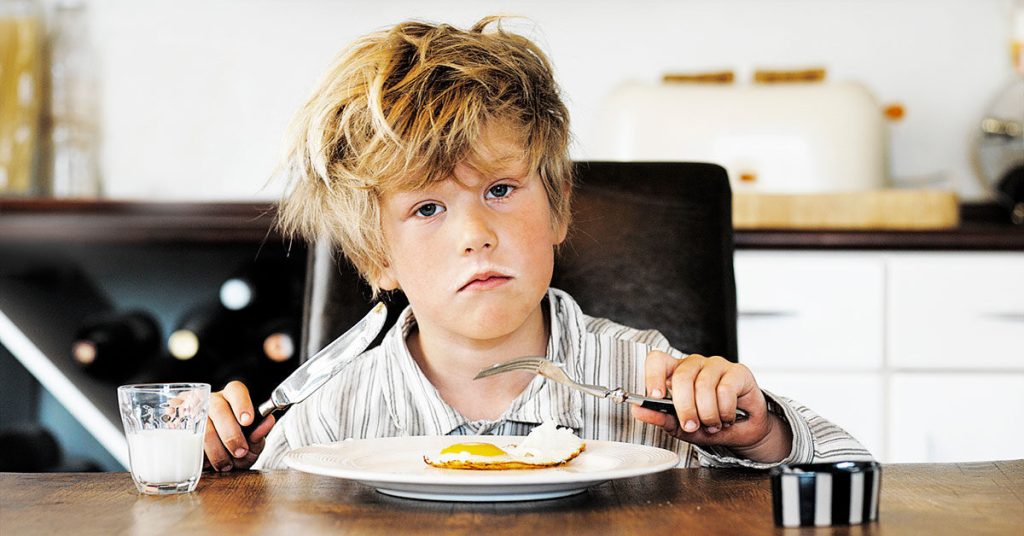 Image source HealthlineIf your child used to sit still for long periods of time but now seems to fidget and move about, this could be because of a bully. They could be hyper aware of their surroundings and always ready to bolt if a physical bully spurs the 'flight' half of the 'fight or flight' instinct.
Image source HealthlineIf your child used to sit still for long periods of time but now seems to fidget and move about, this could be because of a bully. They could be hyper aware of their surroundings and always ready to bolt if a physical bully spurs the 'flight' half of the 'fight or flight' instinct.23. Speak Negatively
 Image source Parent For Success
Image source Parent For SuccessWhen you talk to your child about their day, can you observe any negative self-talk? Did they used to come home, bound through the door and be enthusiastic about what went on but now, once you get a few words out of them, it's non-descript and a bit sad? Being bullied might be the reason why.
24. Inability Controlling Bowel Movements
 Image source MedicineNetIf your child is being bullied, they may have an issue with getting to the bathroom on time, particularly if they need to empty their bowels. Stress and anxiety can transfer to their 'insides', causing lots of upset tummies and diarrhoea, which happen without warning.
Image source MedicineNetIf your child is being bullied, they may have an issue with getting to the bathroom on time, particularly if they need to empty their bowels. Stress and anxiety can transfer to their 'insides', causing lots of upset tummies and diarrhoea, which happen without warning.25. Get Defensive When Questioned
 Image source Mom Loves BestIf you think your child is getting bullied, you will want to deal with it by asking them to give you details. When they refuse and become defensive about your questioning, denying it is happening, don't be too quick to believe them. They may be feeling embarrassed about it.
Image source Mom Loves BestIf you think your child is getting bullied, you will want to deal with it by asking them to give you details. When they refuse and become defensive about your questioning, denying it is happening, don't be too quick to believe them. They may be feeling embarrassed about it.26. Won't Use The Word 'Bully'
 Image source NPRA child being bullied will absolutely hate hearing the word as it might make them feel worse and they will have to face up to what is happening, when they really want to keep quiet about it and hope it will all go away. If the parent mentions the word, the child might twist it round and say there is 'drama' going on.
Image source NPRA child being bullied will absolutely hate hearing the word as it might make them feel worse and they will have to face up to what is happening, when they really want to keep quiet about it and hope it will all go away. If the parent mentions the word, the child might twist it round and say there is 'drama' going on.27. Risky behaviour
 Image source Hindustan TimesBullying can take different forms depending on the age of both the bully and the victim. For older kids, being bullied, can stop them thinking rationally as they always feel on high alert. They might change from being sensible to taking risks, crossing the road and darting fast cars to serious stuff like stealing cars.
Image source Hindustan TimesBullying can take different forms depending on the age of both the bully and the victim. For older kids, being bullied, can stop them thinking rationally as they always feel on high alert. They might change from being sensible to taking risks, crossing the road and darting fast cars to serious stuff like stealing cars.28. Want To Fit In
 Image source Daily MailBeing singled out as a possible victim of bullying doesn't always mean looking differently. It can be behavioural so if your child starts smoking and swearing, totally out of character for them, then it's going to be due to wanting to fit in with the clique that are terrorizing them.
Image source Daily MailBeing singled out as a possible victim of bullying doesn't always mean looking differently. It can be behavioural so if your child starts smoking and swearing, totally out of character for them, then it's going to be due to wanting to fit in with the clique that are terrorizing them.29. Starts Stuttering
 Image source Family CornerThis is really sad. Kids that are being bullied can become so scared that it can affect them in many ways, including stuttering. Then the bullying problem can exacerbate as he or she will be made fun of because of this. The child will be so self conscious that they will shrink into themselves.
Image source Family CornerThis is really sad. Kids that are being bullied can become so scared that it can affect them in many ways, including stuttering. Then the bullying problem can exacerbate as he or she will be made fun of because of this. The child will be so self conscious that they will shrink into themselves.30. Your Child Finally Admits It
 Image source ReachOut ParentsThe time will most likely arrive when everything comes pouring out, either because your child is being brave enough to tell you or a situation happens and you realise what's been going on. Hopefully, the bullying will stop, due to intervention. The dark place they have been in will start to allow a glimmer of light in.
Image source ReachOut ParentsThe time will most likely arrive when everything comes pouring out, either because your child is being brave enough to tell you or a situation happens and you realise what's been going on. Hopefully, the bullying will stop, due to intervention. The dark place they have been in will start to allow a glimmer of light in.